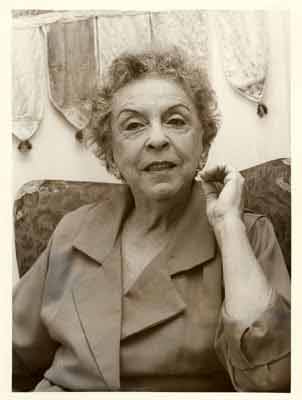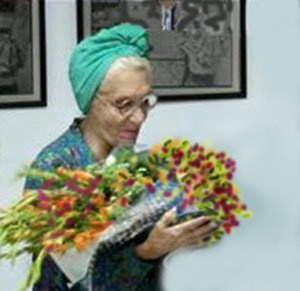Esther is perhaps the last representative of a golden age of Cuban music, of the ballroom and village song, full of emotions, always melancholic even when it convenes joy.
Esther is a remarkable woman; she also stands out for her clear intelligence, always committed to her time and completely faithful to her beliefs.
Esther has steadfastly defended everything she considers essential for her country. For years, when the name of Ernesto Lecuona was crossed out in the booklets of some officials, Esther sang the composer’s music again and again, to keep his music alive.
Who can ignore her in that other Cuban anthem that is Damisela encantadora (lovely damsel), Lecuona’s song that has invited the public to sing along its waltz-like chorus, one of the most recurring and exciting shared experiences of our culture since its release?
Impossible to forget Esther Borja on television, hosting her evening program Album de Cuba (Cuba’s Album), in which she went over the history of Cuban music. On screen, Esther was a lady who sang beautifully in the garden, in the Camagüey patio, or walking with her music the difficult streets of Trinidad. In this way, the artist developed a world of sensations among the new generations.
Esther Borja’s singing is as Cuban as the trill of endemic birds; she sings the musical notes with the soft sound of the waves caressing the beaches, with the hypnotic rhythm of a swing that sways empty in the yard; or the murmur of the water pouring from the fountain in garden background.
When we hear her sing the sweet smell of the orange trees and the taste of tropical fruits come to us. It reminds us of the quiet naptime, of the starry night above the palm trees. Owner of the afternoon, that’s how Fina García Marruz called her and certainly the voice of Esther Borja is always that quiet calm of the quiet hours, when the sun reaches everywhere with its light and Cubans seek refuge in the humidity of the shadows.
Only a superior artistic sensibility can produce that kind of joy. Esther is one of the pillars of our culture. Her voice represents the Cuban expression.
Translated by: Daysi Olano
Revised by ESTI





